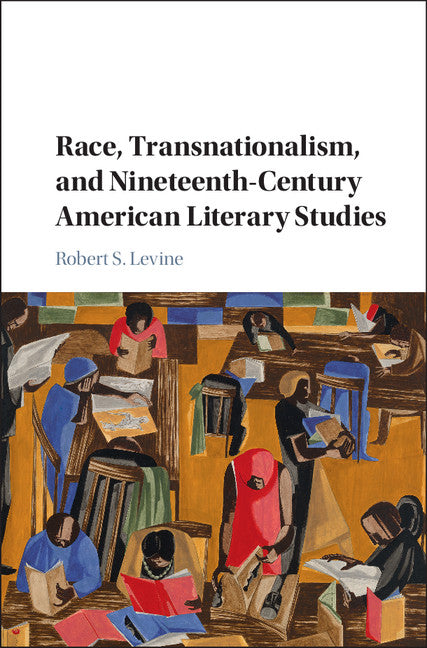Freshly Printed - allow 8 days lead
Couldn't load pickup availability
Race, Transnationalism, and Nineteenth-Century American Literary Studies
This book offers new perspectives on race and transnationalism in nineteenth-century American literary studies.
Robert S. Levine (Author)
9781107095069, Cambridge University Press
Hardback, published 2 November 2017
256 pages
23.5 x 16 x 1.9 cm, 0.52 kg
'With typical cogency and a mastery of nineteenth-century American literary history, Robert S. Levine presents, in revised form, a series of essays that have helped to reshape the field over the past quarter century. The individual essays are impressive, taking up European American and African American literatures, advancing our understanding of nineteenth-century debates about race, nation, empire, temporality, and aesthetics, and showing the importance of these debates for the present. Taken together, the ten essays offer a model for articulating literature and history that preserves the complexities in both fields, and they make an eloquent case for authorial intention and critical agency.' Samuel Otter, University of California, Berkeley
Inspired by Toni Morrison's call for an interracial approach to American literature, and by recent efforts to globalize American literary studies, Race, Transnationalism, and Nineteenth-Century American Literary Studies ranges widely in its case-study approach to canonical and non-canonical authors. Leading critic Robert S. Levine considers Cooper, Hawthorne, Stowe, Melville, and other nineteenth-century American writers alongside less well known African American figures such as Nathaniel Paul and Sutton Griggs. He pays close attention to racial representations and ideology in nineteenth-century American writing, while exploring the inevitable tension between the local and the global in this writing. Levine addresses transatlanticism, the Black Atlantic, citizenship, empire, temperance, climate change, black nationalism, book history, temporality, Kantian transnational aesthetics, and a number of other issues. The book also provides a compelling critical frame for understanding developments in American literary studies over the past twenty-five years.
Introduction
1. Reading slavery and race in 'classic' American literature
2. Temporality, race, and empire in Cooper's The Deerslayer: the beginning of the end
3. Fifth of July: Nathaniel Paul and the circulatory routes of black nationalism
4. American studies in an age of extinction: Poe, Hawthorne, Katrina
5. The slave narrative and the revolutionary tradition of African American autobiography
6. 'Whiskey, blacking, and all': temperance and race in William Wells Brown's Clotel
7. Beautiful warships: the transnational aesthetics of Melville's Israel Potter
8. Antebellum Rome: transatlantic mirrors in Hawthorne's The Marble Faun
9. Edward Everett Hale's and Sutton E. Griggs's Men without a Country
10. Frederick Douglass in fiction: from Harriet Beecher Stowe to James McBride
Notes.
Subject Areas: Literary studies: fiction, novelists & prose writers [DSK], Literary studies: from c 1900 - [DSBH], Literary studies: c 1800 to c 1900 [DSBF], Literature: history & criticism [DS], Literature & literary studies [D]


